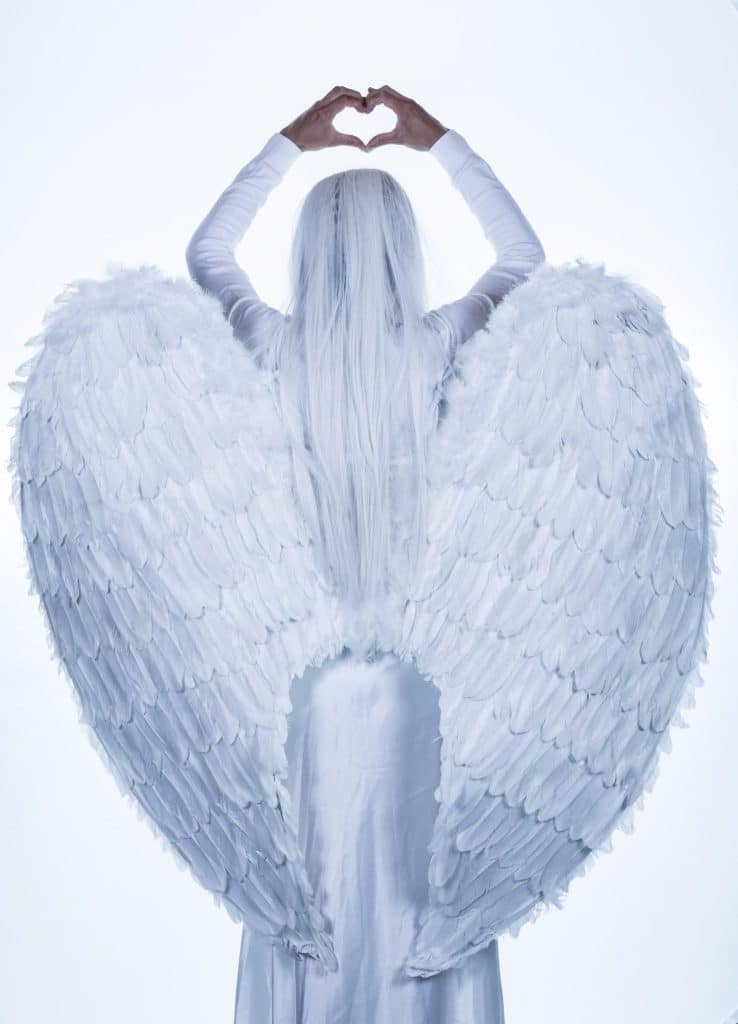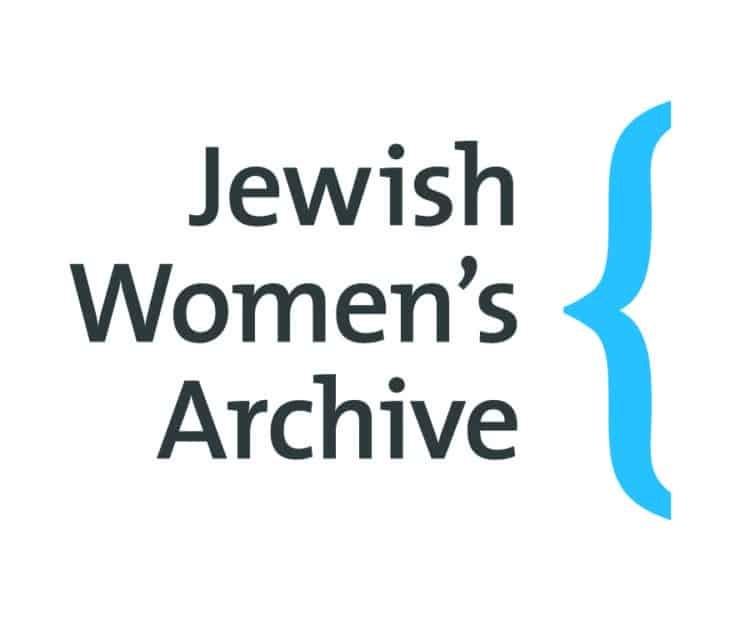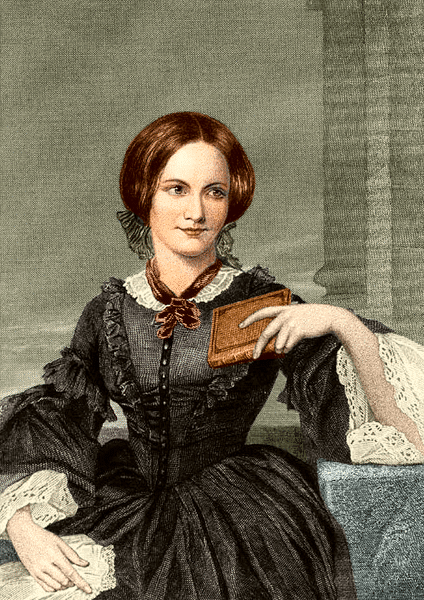
 The Jewish Women’s Archive’s Rising Voices Fellowship is a 10-month program for female-identified teens in high-school who have a passion for writing, a demonstrated concern for current and historic events, and a strong interest in Judaism, gender and social justice.
The Jewish Women’s Archive’s Rising Voices Fellowship is a 10-month program for female-identified teens in high-school who have a passion for writing, a demonstrated concern for current and historic events, and a strong interest in Judaism, gender and social justice.
Here is a sampling of their finest work:
When Brontë Gave Me Wings
by Dorrit Corwin
Since seventh grade, I’ve been a proud member of a school community that pushes girls to reach their full potential and encourages them to become feminists from the day they step foot on campus. Given who we are as an institution and as a community, it isn’t surprising that after analyzing the book of Genesis from a secular perspective, eighth graders then tackle
 Charlotte Brontë’s Jane Eyre. I didn’t find Genesis terribly compelling, but Jane Eyre became my bible and transformed the way I view feminism, literature, religion, and my identity as a young woman.
Charlotte Brontë’s Jane Eyre. I didn’t find Genesis terribly compelling, but Jane Eyre became my bible and transformed the way I view feminism, literature, religion, and my identity as a young woman.
My school may sound like a beacon of female empowerment, but not every eighth grader falls in love with Jane Eyre quite like I did. It’s undoubtedly a challenge for 13 and 14-year-old girls to find things like a two-page description of the curtains in Thornfield Hall’s red room compelling.
English-loving upperclassmen often debate pushing Jane Eyre to the 11th grade British literature curriculum, but I defend its place in eighth grade because it provides a concrete gateway to discussing feminism earlier on. When we read Jane Eyre, I discovered a strong female role model to look up to as I entered high school; I was inspired to apply Jane’s characteristics to my own identity. Her diligent work ethic, strong sense of self, reckless independence, and raw emotion resonated with my eighth-grade self and caused me to be more proactive about standing up for my beliefs.
One fictional role model led to my discovery of seven real-life ones. By the end of eighth grade, I formed a close-knit friend group of eight young women whose values mirror both mine and Jane’s. With them by my side and with Jane’s bold and outspoken nature in mind, I began seeking out creative and activist outlets as my core modes of self-expression.
It then occurred to me that as much as I idolized Jane and her values, I also aspired to be like her creator: Charlotte Brontë. After all, she was the wind beneath Jane’s feminist wings, and the one who brilliantly told a story that has since been engraved in both feminist and literary culture.
Since that epiphany, writing has become my preferred form of self-expression. When I found myself surrounded by insurmountable teen talent at the Kenyon Review Young Writers’ Workshop this summer, I was both intimidated and inspired by my peers’ prose. I was also reminded of my role as a feminist when I met a boy from South Carolina whose conservative views were explicitly referenced in his pieces. Rather than staying silent, I became fascinated by his moral compass and political views. Something inside me made me want to learn more about his beliefs and to expose him to mine. “Are you a feminist?” I asked. One simple question led to an initially bothersome answer, a three-hour explanation of feminism, and him wearing my “radical feminist” sweatshirt to class the next day. If we can all be as blunt and bold as Jane, we really can bridge divides.
With junior year looming before me, I still look up to Jane as a character and to Charlotte Brontë as an artist and as a visionary. I believe that reading Jane Eyre as early as I did, and in such a feminist-minded environment, made the experience a pivotal moment in my life. The novel will continue to be relevant as I mature into someone who I can only hope will be as confident as Jane. Her words are words to live by: “I am no bird, and no net ensnares me; I am a free human being with an independent will.”
When Identities Meet
by Rachel Harris
The first moment it hit me that Israel was my new reality—that I would be spending the next four months with these sixty teens as part of the NFTY EIE program—was our first Shabbat together. We went to the Kotel, first to the egalitarian section for a quintessential Reform service—guitars, hand movements, etc…The familiar service made the people whom I had met less than a week earlier feel like family.

We then walked to the main section together, but were almost immediately split up. The security lines had signs that read Women and Men. Security guards patted us down—poked and prodded to make sure we weren’t carrying anything dangerous. When we got inside, our counselors told us to meet under the flagpole in an hour, and then gave us free reign.
I approached the wall, the sounds of singing and prayer to my left (the men’s side) in stark contrast to the near silence to my right (the women’s side). There were two teenage girls next to me standing on stools and peering across the barrier, looking longingly at the dancing circles of men. I tried to ignore my increasing discomfort about the gender divide and focus on the fact that I was, arguably, in the holiest place on earth for the Jewish people.
When I finally reached the wall, I placed my hand on it, and everything around me disappeared. I ran my fingers over the notes in the cracks of the wall, overcome with emotion. Each tiny paper was packed with hopes and dreams. Hundreds of people come here every day; each regarded this wall with individual significance. The power of this was not lost on me, and, in that moment, I felt more connected to my Judaism than ever before. I placed my forehead on the cool rock and closed my eyes, a small smile on my face.
Minutes passed, I opened my eyes, and my surroundings returned: the sound of the men singing and dancing, the sight of the two young girls on their tiptoes, the eerie silence on the women’s side. The weight returned to my shoulders. My stomach clenched. I walked back to the flagpole in a daze, slightly bewildered by the mix of emotions I had just experienced.
That night, back at my room, I stared at the ceiling and tried to sort everything out. I felt a shift in my views, but I couldn’t articulate what that meant. After a few minutes, I turned to Melissa and Tovia, my roommates.
“I’m angry, and frustrated,” I said. “But I’m also so spiritually fulfilled. I don’t know how to feel.” I didn’t need to say anything else; they immediately knew what I was talking about.
As a clergy kid from a town that is nearly 50% Jewish, I have always been comfortable with my spiritual identity. I’m always happiest at my camp’s guitar-filled services, and I have always considered myself “Jewish first.” I went to Israel completely at ease with my relationship with religion, only to have my world turned upside down at the wall. It was extremely difficult for me to confront the fact that the feminist and Jewish values that I have always considered one and the same were so starkly at odds.
Since that night, my comfort in questioning the world around me has increased. This moment of discomfort coupled with true spiritual awakening helped me realize that it’s wholly possible to be supportive of an institution while also questioning it. No matter how strongly you believe in something, it’s important to resist blindly following it. Rather, it’s important to constantly and consciously question and re-assess our views, in order to grow both personally and spiritually. This experience didn’t make me any less Jewish, nor any less feminist, but rather strengthened my connections to both identities. I now have a better understanding of who I am through both of those lenses, as well as how they intersect.
It Happened at a Bar Mitzvah
by Emma Mair
I remember their faces as clear as day and their voices as dark as night. Encircled by seven boys, I couldn’t move and no one could see me. My cries for help went unanswered by the woman I pleadingly made eye contact with in the brief moment I was able to see outside the circle. And yet, she looked away. Does she think about me? Because I think about her.
They scared, intimidated, and embarrassed me. They made me feel broken, unlovable, and dirty; and the worst part is that nearly four years later, I sometimes still feel that way. Do those boys think about me? Because I think about them.
I carry a whistle everywhere I go. I paid extra attention that one day we learned self-defense in gym class. Hugs from behind scare me, I’m claustrophobic, and I can’t go into a public bathroom by myself. My shoulders and knees are almost always covered, not that what I was wearing was, or ever will be, the problem.
I was not the problem. I am not the problem. I am not broken, unlovable, or dirty. I was not and I am not a weak and misguided girl who wore a “slutty” outfit to a party and flirted too much. Not that that scenario would condone sexual violence either.
Being threatened by a group of people that you don’t know isn’t empowering, nor is it inspiring. What it is is terrifying, but fortunately it’s also eye-opening. Even when it seems that I’m thriving, I still have my bad days. Some days I curl up and cry and it’s all I can think about. Some days I don’t even think about what happened to me.
When my mum came to pick me up from the bar mitzvah, I told her what had happened. She responded by saying that what happened to me happens to so many girls, and is something that all girls have to learn how to deal with. I couldn’t comprehend what she was saying to me. How could what happened to me be perceived as normal? All I understood was that it shouldn’t be.
That conversation with my mum, along with countless other conversations with her about the reality of the world, and her encouragement to always defend and support myself, is what led me to learning about feminism. Feminism taught me that being sexually assaulted wasn’t my fault. Feminism made me feel supported in my fight to heal because it helped me realize that there are so many people who have had similar experiences. I was empowered to turn my bad experience into one I could use to help others. Feminism gave me the courage to heal, and Judaism gave me the tools.
Judaism, paired with what I experienced at that bar mitzvah, caused me to develop a strong sense of justice. I feel obligated to intervene in times of injustice–to be what I wished the woman sitting and eating her dinner had been for me. Judaism taught me to pray with my body, to make real change, and to prevent what happened to me from happening to others. Judaism taught me to find solace in prayer, and to rely on myself. Judaism gave me a platform on which I could apply feminist ideals.
In a culture that heavily stigmatizes sex, it’s surprising to know that the Jewish attitude towards sexuality is much more progressive than one might think it to be. In the Book of Genesis, Dinah, the thirteenth child and only daughter of the patriarch Jacob, is raped by a prince named Shechem. While this passage itself may not be feminist, given that we never hear Dinah’s point of view and she is then bought into a marriage with Shechem, the common Jewish interpretation of this passage is rather feminist. Many rabbis say that even though we don’t hear about Dinah’s experience firsthand, her story brings sexual violence to light, and gives a voice to survivors who can’t or don’t want to speak about their own experiences.
If there’s anything I’ve learned in my healing process, it’s that there is a place for women in Judaism. Judaism values women. In Judaism, women are more than sexual objects, and more important than general society deems us to be.
The experience I had at that bar mitzvah was very scary and it will be something I remember forever, but the combination of Judaism and feminism has empowered me, helped me heal, and given me purpose in life. No person should ever have to experience sexual violence, and I will fight to make sure of that. Sharing my story is a powerful way to reach people, and is my way of telling others in similar positions that they are not alone.



